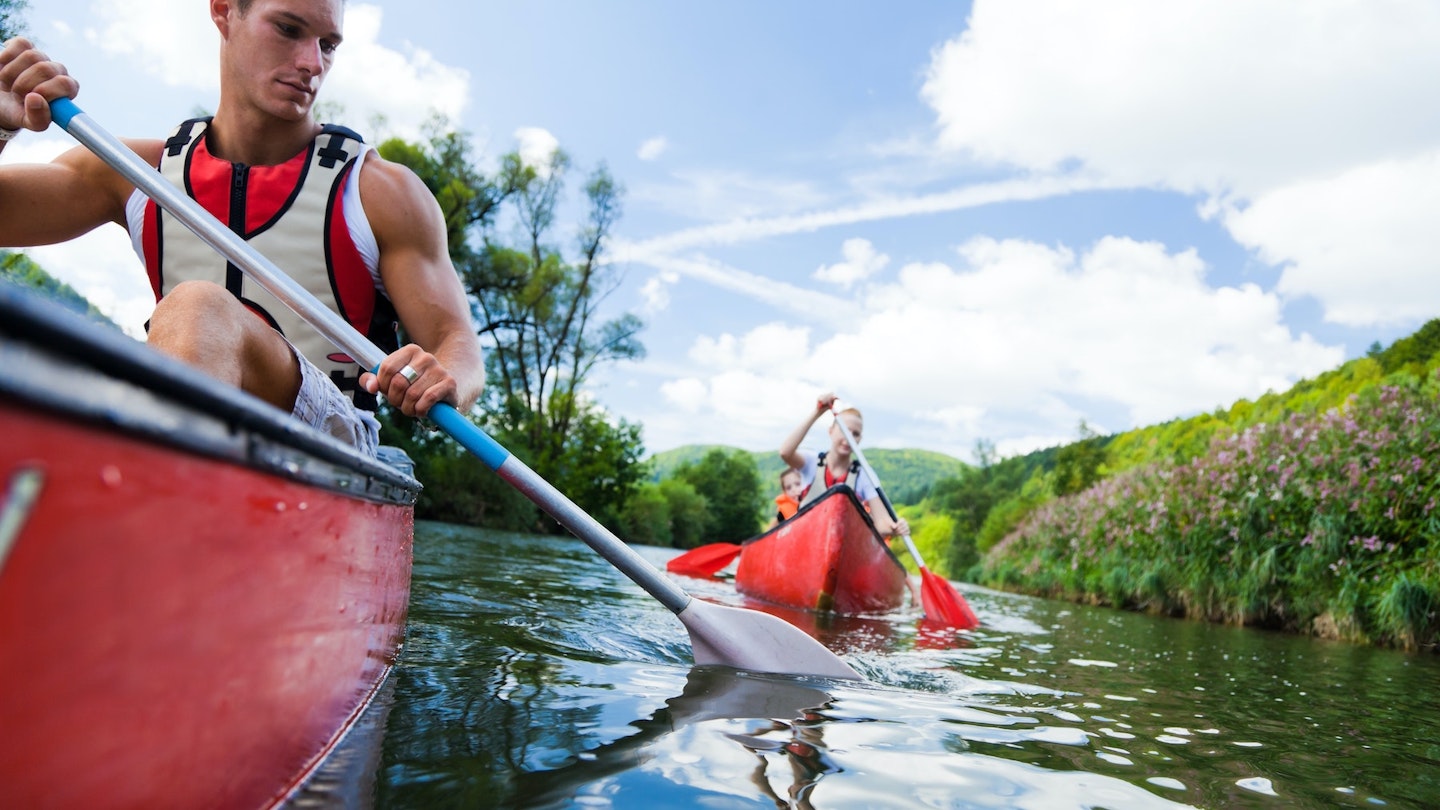Kayaking is a wonderful way to exercise. It gets you into the great outdoors and is a welcome alternative to gym-based workouts. It's an excellent option for anyone looking to get some exercise in the spring and summer without missing out on the nice weather and valuable time with friends and family. Grabbing one of the best inflatable kayaks and heading out onto British waterways might just be one of the best things you do this year.
Kayaking, like canoeing and paddleboarding, is aerobic and strength-building. Just as importantly, kayaking can also be great for your mental health.
If you're looking to get on the water as soon as possible, don't forget to read our guide to kayak licencing in the UK.
Like all exercise, how much of a workout kayaking gives you depends on how hard you are working. A gentle paddle across a still lake is less taxing than racing against the flow of a river, for example. If you really want to include kayaking as part of an exercise regimen, we recommend talking to a kayaking professional, who can introduce you to proper kayaking drills and training techniques.
Below, we look at the benefits of recreational kayaking as a form of exercise.
Cardio
The consistent motions and physical engagement required by paddling a kayak will have your cardiovascular system working. How hard your lungs and heart work will depend on how fast and hard you paddle.
If you’re racing friends and partaking in short sprints, your cardio system will work harder than if you take things easy with the current. However hard you are working, your heart rate is sure to increase over its resting pace, which is only a good thing.
Strength-building
Kayaking can be compared with compound strength exercises because it’s an activity that engages multiple muscle groups at the same time.
Paddling, with its continuous pulling motion, engages the shoulders, arms and back. You will also be engaging your core to stabilise your position, keeping a taught upright position, and balancing out the rocks of the kayak as it passes through waters, turns and encounters different currents.
While kayaking does engage a lot of muscle, it’s not akin to weight-based strength training, where resistance can be upped continuously to promote strength and muscle growth. Most people who kayak recreationally will find that their muscles build up endurance through kayaking, rather than bulk and mass.
Mental health
Just as important as your physical health is your mental health. Getting out into nature in any form can do great things to help your mental well-being, and kayaking is a fun and active pastime to help you spend more time outdoors. It’s also a way to meet new people and socialise.
According to the mental health charity Mind, spending time in nature has been shown to help with anxiety, depression, and seasonal affective disorder (SAD). It can also help improve your mood, relieve stress, and build self-esteem.
You can visit the Mind website for more information and support.
William Lobley is a Deputy Editor and reviewer for What's The Best, specialising in technology, gaming, and outdoors. He also writes for Empire Online.
Subscribe to the What’s The Best Newsletter to keep up to date with more of the latest reviews and recommendations from the rest of the What’s The Best team.
